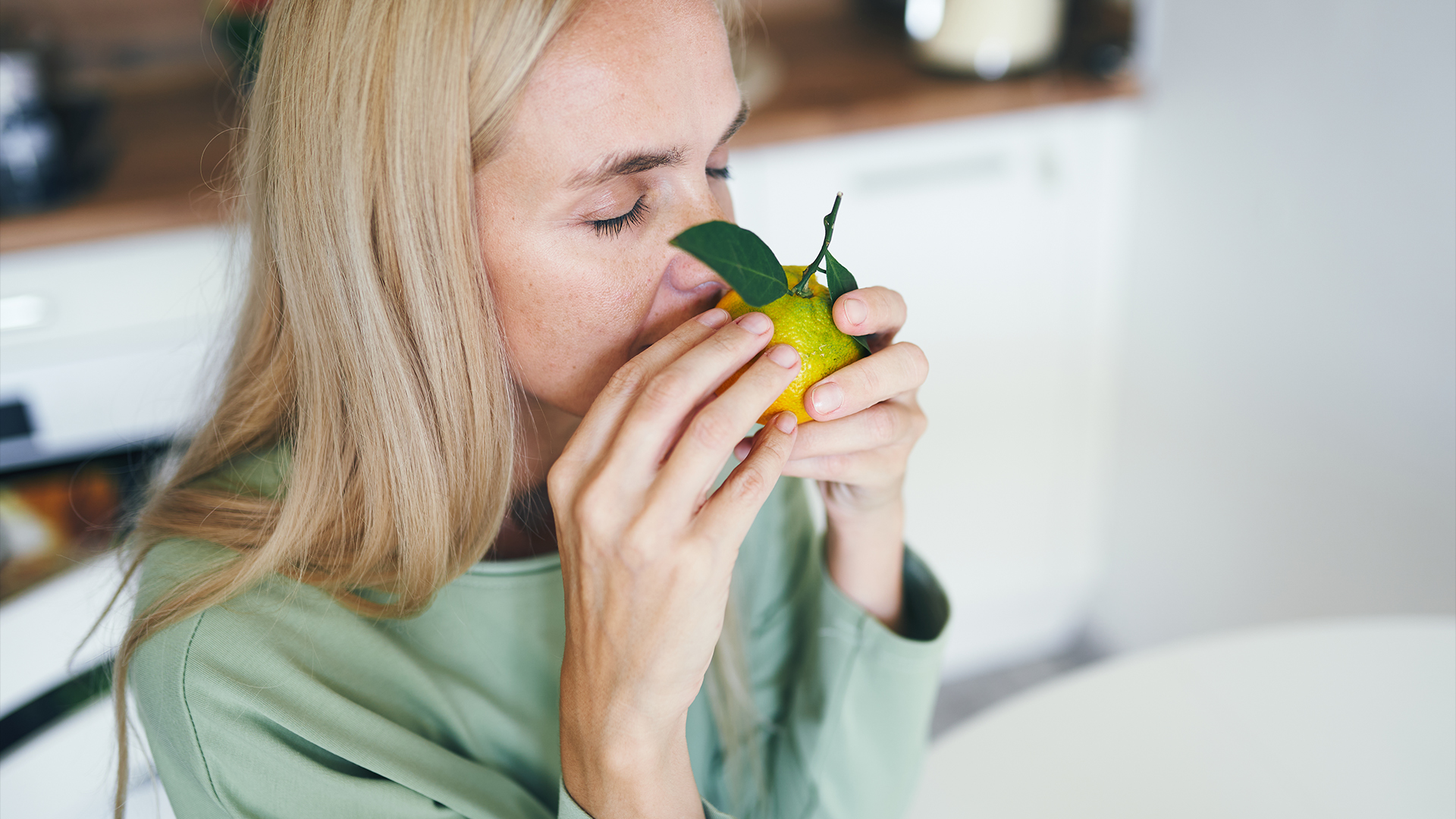'Scent therapy' helps unlock memories in people with depression, trial finds
Scent therapy could be a useful tool for helping people with depression tap into their autobiographical memories, a small trial hints.

Get the world’s most fascinating discoveries delivered straight to your inbox.
You are now subscribed
Your newsletter sign-up was successful
Want to add more newsletters?

Delivered Daily
Daily Newsletter
Sign up for the latest discoveries, groundbreaking research and fascinating breakthroughs that impact you and the wider world direct to your inbox.

Once a week
Life's Little Mysteries
Feed your curiosity with an exclusive mystery every week, solved with science and delivered direct to your inbox before it's seen anywhere else.

Once a week
How It Works
Sign up to our free science & technology newsletter for your weekly fix of fascinating articles, quick quizzes, amazing images, and more

Delivered daily
Space.com Newsletter
Breaking space news, the latest updates on rocket launches, skywatching events and more!

Once a month
Watch This Space
Sign up to our monthly entertainment newsletter to keep up with all our coverage of the latest sci-fi and space movies, tv shows, games and books.

Once a week
Night Sky This Week
Discover this week's must-see night sky events, moon phases, and stunning astrophotos. Sign up for our skywatching newsletter and explore the universe with us!
Join the club
Get full access to premium articles, exclusive features and a growing list of member rewards.
People with depression may struggle to recall specific memories about their lives — for instance, a dinner party with friends or a visit to their favorite coffee shop. Now, a small trial suggests that "scent therapy" could help people with depression unlock those difficult-to-access autobiographical memories (AMs).
The trial, described Tuesday (Feb. 13) in the journal JAMA Network Open, included 32 adults with major depressive disorder and used familiar scents — such as coffee grounds, oranges and Vicks VapoRub — as prompts for the participants to recall specific memories. So, for example, if presented with coffee, a person might think of meeting up with their sibling for lattes on a specific spring afternoon, as opposed to just generally thinking of the local cafe they often visit.
Previous studies had tried similar memory tests but instead used words and pictures as cues for the participants. So, in the new trial, the scientists switched between scents and words as cues, to see if one type of trigger might be more effective at jogging people's autobiographical memories. They found that the participants recalled more specific memories when cued by smell.
Related: How does the brain store memories?
"It was surprising to me that nobody thought to look at memory recall in depressed individuals using scent cues before," senior study author Kymberly Young, an associate professor of psychiatry at the University of Pittsburgh, said in a statement. Scents are known to trigger strong, often emotional, memories in a unique way that other stimuli don't necessarily do.
"The olfactory system is the only sensory system that has a direct, superhighway access to the memory centers of the brain and the emotional centers of the brain," Michael Leon, a professor emeritus of neurobiology and behavior at the University of California, Irvine, who wasn’t involved with the new study, told NBC News. "All the other senses have to take the side streets to get there."
So, in theory, harnessing smell might be a good strategy for rewiring those emotional centers in depression and unlocking the memories they help to recall. "If we improve memory, we can improve problem solving, emotion regulation and other functional problems that depressed individuals often experience," Young said.
Get the world’s most fascinating discoveries delivered straight to your inbox.
That's because, when it comes to memories, people with depression have a bias toward lumping individual events into broad categories and overgeneralizing the emotions tied to those events. For instance, a person might recall "time spent in college" as one category and paint that whole chapter of life as negative, without being able to pluck out individual, positive memories from that time.
This memory bias keeps the person entrenched in negative thinking patterns that are difficult to break. For instance, it can make it more difficult for a person to debunk negative, overgeneralized thoughts about themselves, such as "I am a failure."
The trial sought to disrupt those patterns by helping people recall specific memories. Study participants were asked to recall memories — positive or negative — after sniffing 24 odor samples from glass jars or after hearing words that described those odors. The odors covered a broad range, including lavender, cumin, whiskey, cough syrup and shoe polish.
"In the verbal cue condition, 52% of memories were specific, while in the odor cue condition, 68% of memories were specific," the study authors wrote in the paper. "Additionally, we found that these AMs are rated more arousing and vivid upon recall," compared with the memories cued by words, they noted.
The team plans to run future trials with the addition of brain scans, to see how the amygdala, a key emotion-processing hub in the brain, responds to the treatment.
"We hope this initial study spurs larger studies in more diverse samples that include healthy control participants" — meaning people without depression — "to further investigate and explain these associations," they concluded.
This article is for informational purposes only and is not meant to offer medical advice.
Ever wonder why some people build muscle more easily than others or why freckles come out in the sun? Send us your questions about how the human body works to community@livescience.com with the subject line "Health Desk Q," and you may see your question answered on the website!

Nicoletta Lanese is the health channel editor at Live Science and was previously a news editor and staff writer at the site. She holds a graduate certificate in science communication from UC Santa Cruz and degrees in neuroscience and dance from the University of Florida. Her work has appeared in The Scientist, Science News, the Mercury News, Mongabay and Stanford Medicine Magazine, among other outlets. Based in NYC, she also remains heavily involved in dance and performs in local choreographers' work.
 Live Science Plus
Live Science Plus










